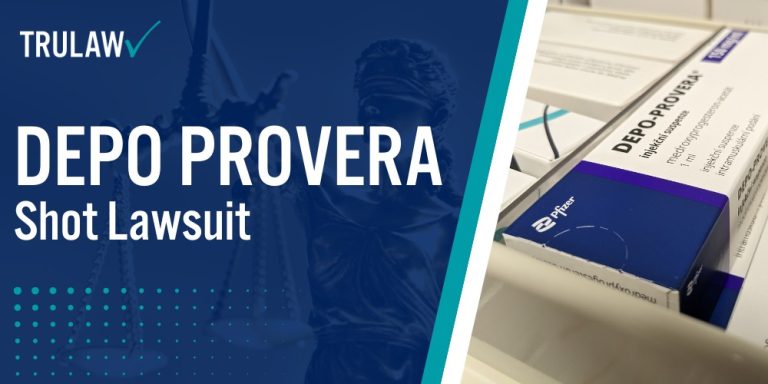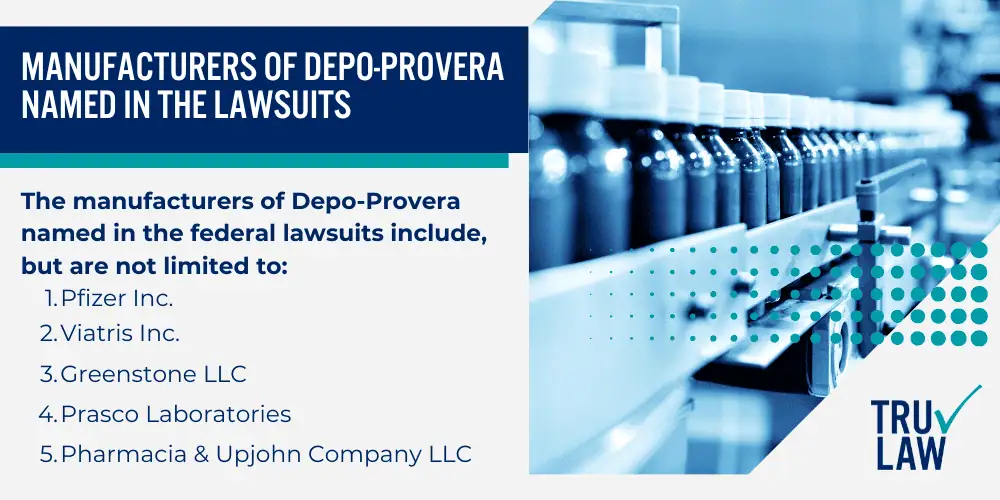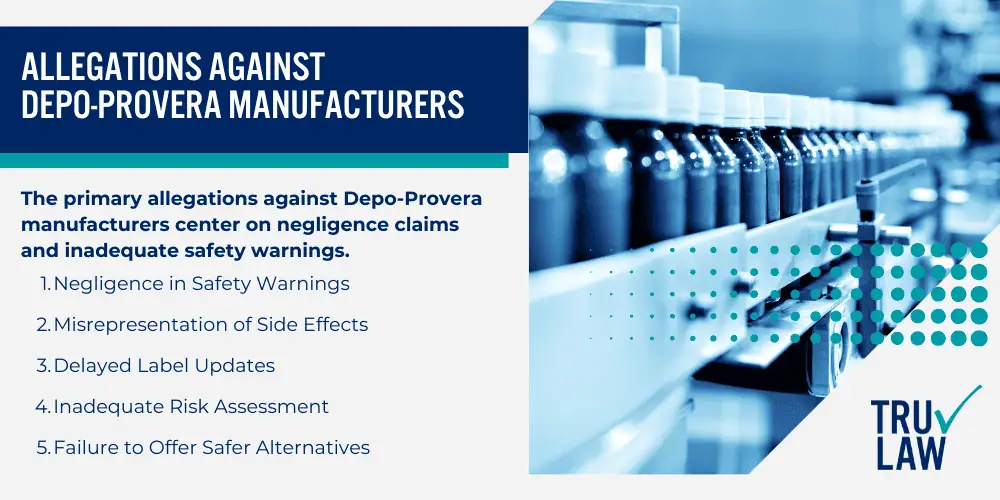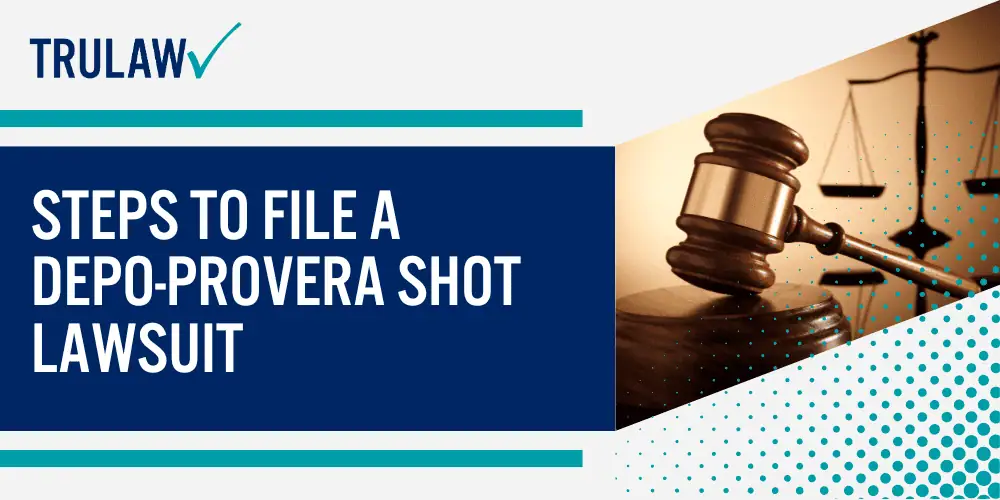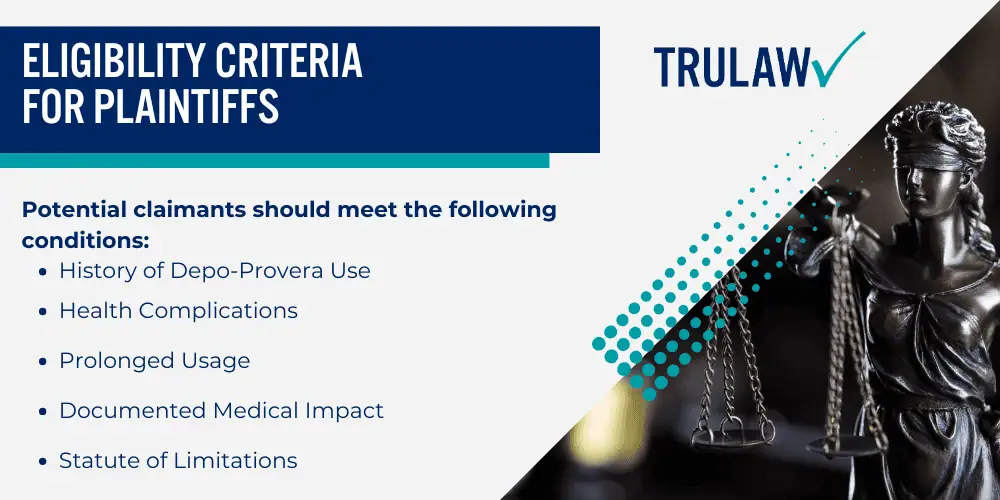Depo-Provera is a hormonal birth control injection administered every three months, containing medroxyprogesterone acetate, a synthetic form of the hormone progesterone.
This contraceptive shot works primarily by preventing ovulation, thickening cervical mucus, and thinning the uterine lining to reduce the likelihood of pregnancy.

Although widely used and generally effective, Depo-Provera has been associated with several health risks when used over long periods.
Health Risks and Side Effects of Depo-Provera
While many women tolerate the injection with minimal issues, others may experience adverse effects that can affect their physical and mental well-being.
The side effects associated with Depo-Provera are under increasing scrutiny, especially in light of reports highlighting the risks of prolonged usage.
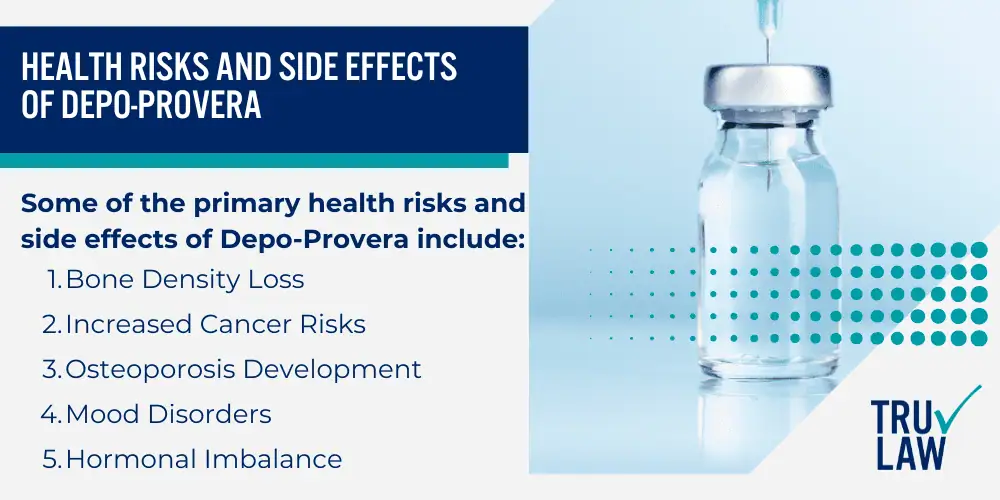
Some of the primary health risks and side effects of Depo-Provera include:
- Meningioma Development: Depo-Provera has been linked to a 5.6-fold increased risk of brain tumors, particularly meningiomas, with risk escalating after one year of continuous use.
- Intracranial Pressure: Prolonged use of Depo-Provera may lead to tumor growth that increases pressure within the skull, causing severe headaches, vision problems, and neurological symptoms.
- Mood Disorders: Some users report mental health effects such as mood swings, anxiety, and depression following Depo-Provera injections.
- Hormonal Imbalance: The high dose of synthetic progesterone may lead to imbalances that affect menstruation, weight, and overall hormonal stability.
While the likelihood and severity of these side effects vary among individuals, anyone considering or currently using Depo-Provera should discuss these risks with a healthcare provider.
Research Discovering Depo-Provera Brain Tumor Link
Scientific studies have identified a concerning link between prolonged Depo-Provera use and an increased risk of meningiomas—typically benign but potentially harmful brain tumors due to their location.
Meningiomas can lead to severe symptoms, including headaches and seizures.
A recent study involving 18,061 women who had undergone surgery for meningiomas, compared with over 90,000 control subjects, found that prolonged Depo-Provera use was associated with a 5.6-fold increase in the likelihood of developing meningiomas.
This risk was even higher among women over 65 who had used Depo-Provera continuously for three or more years.
In response, Pfizer has updated Depo-Provera’s product labels to warn about the potential risk of meningiomas associated with long-term use.
Plaintiffs argue that these updates came too late, as many users were not warned of these risks at the start of their treatment.
Research on Depo-Provera and Breast Cancer Risk
Research on Depo-Provera’s possible link to breast cancer has produced mixed findings, with some studies suggesting a slight increase in risk for specific groups.
Key findings from five extensive case-control studies on depo-medroxyprogesterone acetate (DMPA) and breast cancer include:
- Slight Risk Increase: Three studies showed a slight increase in breast cancer risk among DMPA users, with only one study reaching statistical significance.
- Impact of Duration and Recency: A recent U.S. study found that women who used DMPA for a year or more and within the past five years experienced a statistically significant increase in breast cancer risk.
- Consistency Across Studies: This recent finding aligns with prior research showing an elevated risk for recent, long-term DMPA users.
These findings underscore the importance of assessing personal breast cancer risk factors, such as family history when considering Depo-Provera.
Discussions between patients and healthcare providers can help weigh the contraceptive benefits of Depo-Provera against potential long-term health risks.
If you or a loved one has developed severe health conditions after using the Depo Provera shot, you may be eligible for compensation.
Contact TruLaw using the chat on this page to receive an instant case evaluation to see if you qualify to join others filing Depo-Provera meningioma lawsuits today.
